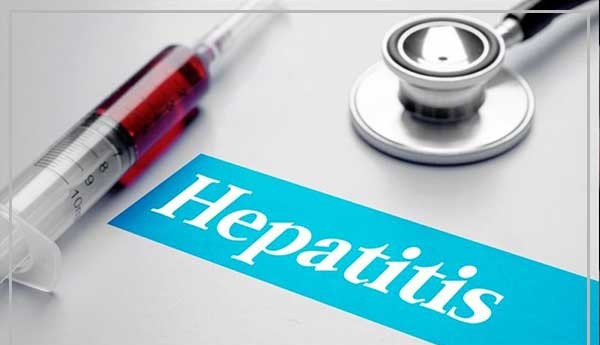Hepatitis: Experts call for increased awareness, early detection in Lagos
A Consultant Gastroenterologist and Hepatologist, Prof. Casimir Omuemu, has called for early detection and timely intervention in managing viral hepatitis in Lagos State.
READ ALSO:Hepatitis B more dangerous, infectious than HIV – Experts warn
Omuemu, who works at the University of Benin Teaching Hospital (UBTH), made the call on Monday during a four-day training programme for medical officers in Lagos State General Hospital.
The training was organised by the Lagos State Ministry of Health with support from the Saving One Million Lives Programme for Results (SOMLPforR).
Omuemu described viral hepatitis as a “silent killer” that demands urgent attention, revealing that one in every 12 people is affected by hepatitis, often without noticeable symptoms until complications arise.
According to him, early detection is cheaper and less painful than dealing with complications like cancer and liver failure.
Omuemu warned that complacency was dangerous, urging Nigerians to prioritise testing and vaccination, which are critical to protecting individuals, families, and future generations from the disease.
He commended the training initiative, acknowledging complexities involved in diagnosing and treating hepatitis, while stressing the importance of continuous education for healthcare professionals to stay updated on new advancements.
“The diagnosis and treatment of hepatitis are evolving, and healthcare providers must be adequately equipped to identify complications and know the facilities available for proper management,” he said.
Similarly, Dr Rufina Igetei, Consultant Gastroenterologist at the Lagos State University Teaching Hospital (LASUTH), lamented the lack of awareness and late presentation of patients to health facilities.
Igetei attributed it to limited access to healthcare infrastructure and inadequate follow-up by those diagnosed.
According to her, Hepatitis B is responsible for many long-term liver diseases in Nigeria.
Igetei stressed that prevention remained the most effective strategy, urging healthcare providers to prioritise early detection, patient education, and vaccination.
Commenting, Dr Victoria Egunjobi, Director, Disease Control, Lagos Ministry of Health, said the training was aimed at enhancing the capacity of medical officers in secondary health facilities for improved management of viral hepatitis cases.
Egunjobi said the programme aimed at ensuring access to care in all health facilities, a step toward achieving the World Health Organisation’s (WHO) target of eliminating viral hepatitis by 2030.
She added that the state Hepatitis Control Programme would include community awareness initiatives, screenings, and vaccinations to enhance prevention and management efforts.
Also, Dr Mazeedat Erinosho, Coordinator of SOMLPforR, stressed the urgency of addressing viral hepatitis knowledge gap among healthcare workers.
“Many healthcare workers, including doctors, lack sufficient knowledge about viral hepatitis, and this training is a step toward bridging that gap,” she said.
Erinosho commended Lagos state for being the first state in Nigeria to initiate screening and vaccination against viral hepatitis for healthcare workers.
Hepatitis is an inflammation of the liver that is caused by a variety of infectious viruses and non-infectious agents leading to a range of health problems, some of which can be fatal.
There are five main strains of the hepatitis virus, referred to as types A, B, C, D and E.
While they all cause liver disease, they differ in modes of transmission, severity of the illness, geographical distribution and prevention methods.
NAN/Wumi


Comments are closed.